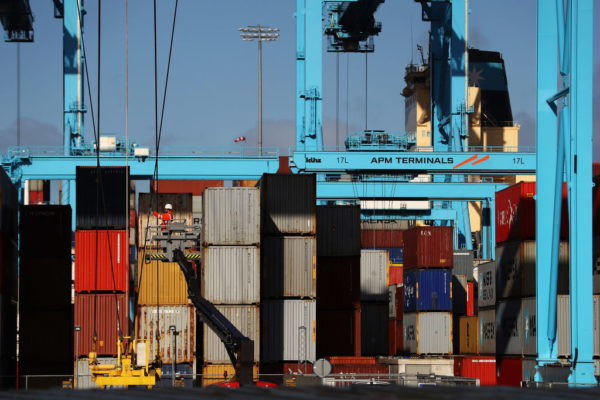UK signed document blocking efforts to make International Maritime Organisation more transparent
Signed by Panama, the Cook Islands, the Marshall Islands, Panama, United Arab Emirates, and the United States - document warns moves to open up shipping body ‘could lead to outside influence’

The UK signed a document seeking to block efforts to make the world’s top shipping regulator more transparent, after a leading NGO called for “urgent reform” within the organisation.
An official document signed by the UK, the Cook Islands, the Marshall Islands, Panama, United Arab Emirates and the United States and submitted to the International Maritime Organisation’s working group on reform in October this year noted concerns from some members that “further expansion of access to information” about the organisation “could lead to outside influence”. As a result the document suggested the motion be abandoned.
Next week, the IMO will hold a debate on reform at its headquarters in London. Australia is among the countries calling for greater openness at the organisation, with measures to open up meetings to the public and give more powers to journalists covering the body.
The IMO is the UN body is supposed to ensure the shipping industry curbs greenhouse gas emissions and limits plastic waste. In April, the organisation signed an historic agreement to dramatically reduce carbon emissions from the sector. The agreement commits shipping companies to halve their greenhouse gas emissions by 2050, compared to 2008 levels.
But the London-based organisation has been dogged by allegations that it is too close to industry.
Transparency International – which published research earlier this year warning that the influences at the IMO could undermine efforts to combat climate change – said it was “concerned” by the document and warned that the UK’s position “could hamper reform” at the organisation.
Heavy presents
Transparency International found that journalists said they were unable to report freely on the organisation, while non-profits could face expulsion from the IMO if they criticised it. Shipping giants were found to have “undue influence over the policymaking process”. While five small states – Panama, Liberia, the Marshall Islands, Malta and the Bahamas – many known as tax havens for ships, had an outsize influence at the body, contributing 43.5% of funding for the organisation from member states.
In 2017, delegates at the IMO expressed concern at the value of gifts given out at the organisation. Climate Home reported that presents left on countries tables were so heavy that they damaged 137 headphones and five microphones.The Transparency International report prompted a move by the IMO to open up more to the public, with the body announcing this summer that its governing council would consider reforms. But according to the document seen by Unearthed, the UK has backed countries arguing against these efforts.
A section of the document published on October 19th 2018 reads:
“During the 120th session of Council, the Secretariat submitted document C 120/4/3 wherein they provided a synopsis of IMO’s current policies on releasing information to the public. During the subsequent discussion, the Council agreed to make some changes to increase the level of transparency that is afforded to the public. It was clear from the interventions made that a number of countries had reservations regarding further expansion of access to information, some attributing this to a concern that it could lead to outside influence. Based on this, the co-sponsors recommend that this topic/issue not be included in the terms of reference of the Working Group.”
Unearthed asked the Maritime and Coastguard Agency, the government department that deals with IMO, for a comment on this story.
An agency spokesperson told Unearthed the UK has “always actively supported transparency in the IMO and will continue to do so.”
A spokesperson added that the document signed by the UK was designed to refer to “the outcome of the last session, not the view of the co-sponsors” – including the UK.
Shipping currently contributes 2% of the world’s carbon emissions, the same as some industrialised countries. A 2015 report by the European Parliament suggested that could rise to 17% by 2050, if emissions are not checked.
Rueben Lifuka, vice-chair of Transparency International, said: “Unfortunately the International Maritime Organization is far too susceptible to disproportionate influence from private interests and certain Member States, meaning that there could be obstacles to meeting the targets for emissions reduction set earlier this year.”
The IMO declined to comment on this story.

